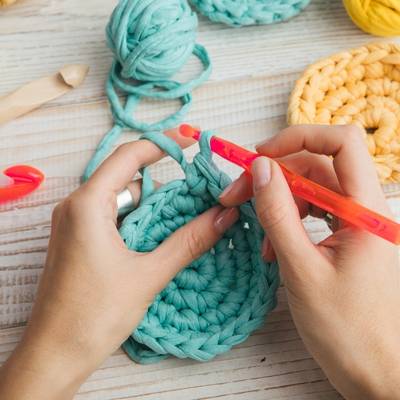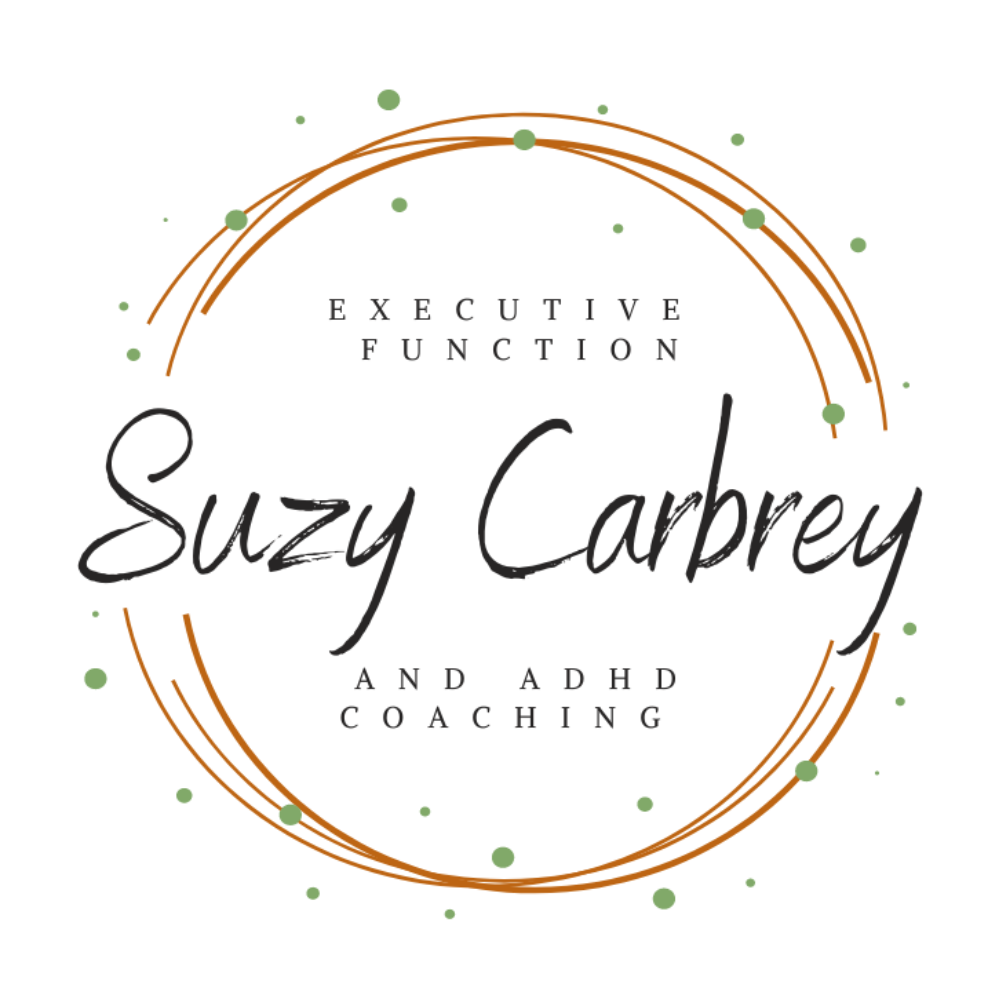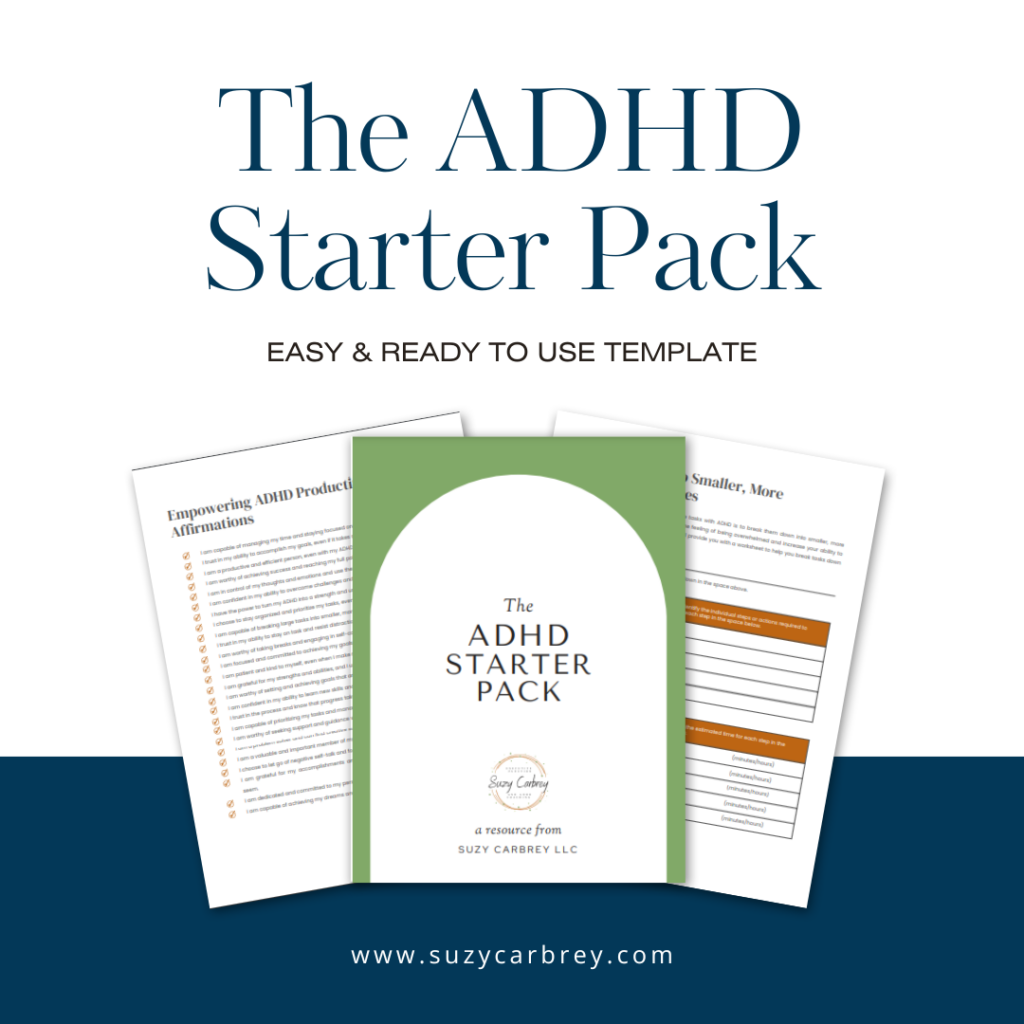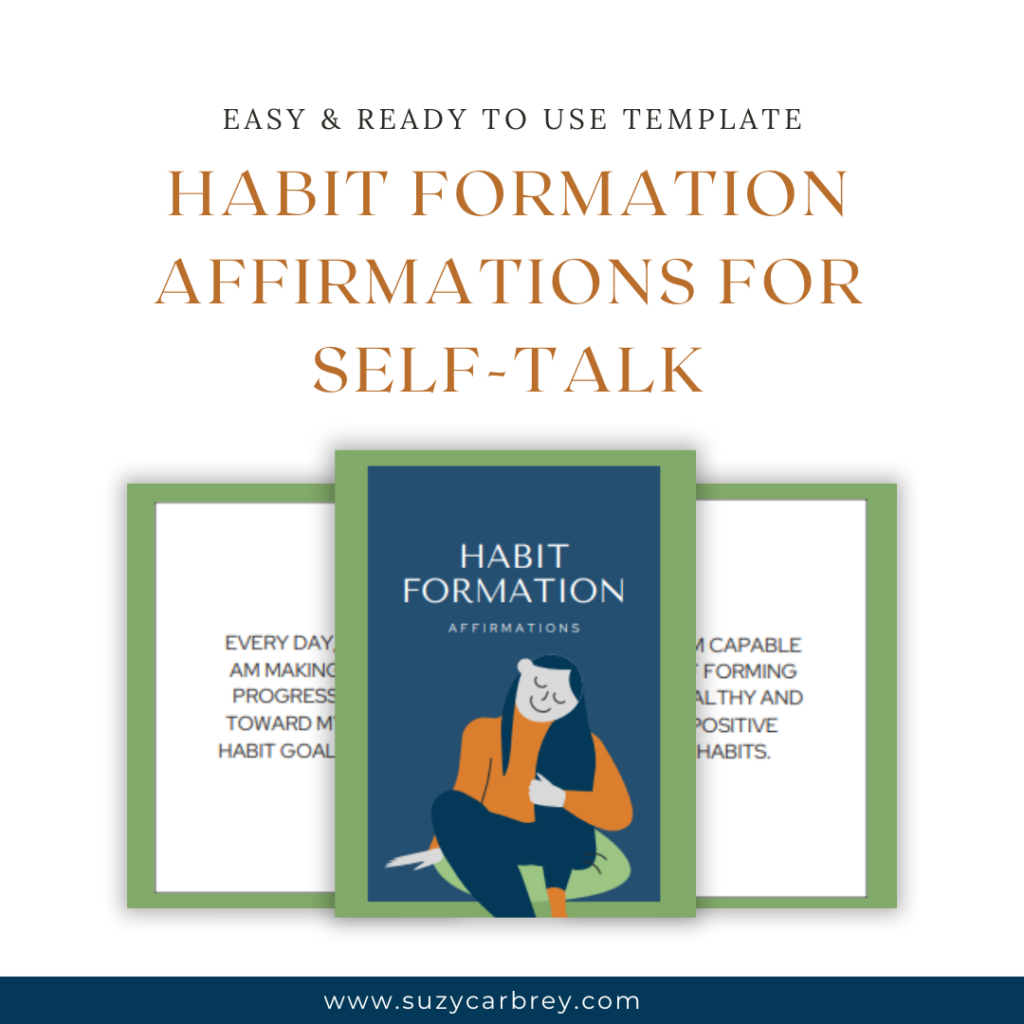When life gets busy, hobbies are often the first thing to disappear. Work runs late, family needs multiply, and chores crowd every blank space on the calendar. Before long, the guitar gathers dust, the half-finished puzzle returns to its box, and the knitting needles slip to the bottom of a basket.
It’s easy to treat hobbies as optional things to pick up again once life calms down. But life rarely slows on its own. And when hobbies fade away, our days can start to feel like nothing more than an endless to-do list. Efficient, maybe. But drained of joy.
Here’s the truth: if you live with executive functioning challenges, hobbies are not luxuries. They’re one of the most supportive tools you can use to strengthen your brain, regulate your energy, and make life feel more balanced. A hobby is not just something “extra” you do when you have time, it’s a way of practicing important executive functioning skills in a setting that feels playful instead of pressured.
When you make time to knit, garden, sketch, or tinker with a recipe, you’re doing more than filling spare minutes. You’re creating a practice ground where your brain can rehearse initiation, planning, organization, and follow-through. You’re regulating your nervous system. You’re experiencing mindfulness in an effortless way. And perhaps most importantly, you’re reminding yourself that you are more than your productivity.
Why Hobbies Slip Away
Most people don’t drop hobbies because they stop enjoying them. They drop them because other parts of life feel louder, heavier, or more urgent. This is especially true when executive functioning skills are stretched thin.
Think about it:
- Time management. When schedules feel full, hobbies are often the first thing pushed aside.
- Planning and prioritizing. Urgent tasks win. Fun ones slide down the list.
- All-or-nothing thinking. If you can’t do it “properly” or for a long stretch, why bother?
- Emotional regulation. Guilt and self-criticism creep in, whispering that hobbies are indulgent instead of important.
The problem is, letting go of hobbies doesn’t actually free up as much space as you might hope. It creates the opposite. Without outlets for creativity and restoration, life feels heavier, and the capacity you were hoping to gain gets eaten away by stress.
The Science of Hobbies and Executive Function
Hobbies are not only good for your mood, they’re good for your brain. Research shows that hobbies strengthen the same skills that make daily life manageable.
When you’re absorbed in painting or puzzling, you’re practicing sustained attention without forcing it. When you gather materials for a project, you’re rehearsing organization and planning. When you adapt after something doesn’t turn out the way you expected, you’re building mental flexibility.
Many hobbies also regulate the nervous system. Think of repetitive, soothing actions: knitting, kneading bread dough, walking a familiar trail. These rhythms support emotional regulation, which in turn helps you focus and problem-solve.
And let’s not forget dopamine. That “feel-good” brain chemical plays a big role in motivation. Starting can be one of the hardest parts of any task, especially for ADHD brains. Hobbies give a dopamine boost through novelty, creativity, and reward, making it easier to get going and keep going.
Why Adults Need Hobbies Too
There’s a common myth that hobbies are for children, retirees, or people with “extra time.” Adults, the story goes, should be focused on work, family, and responsibility. But for adults, especially those with executive functioning challenges, hobbies may be even more essential.
Hobbies provide:
- Resilience. They buffer against stress and give your nervous system ways to reset.
- Balance. They show children (and other adults around you) that fun matters as much as work.
- Identity. They remind you that you are more than the roles you carry: parent, partner, employee.
- Freedom. They offer pockets of life where there’s no deadline, no pressure, just practice and play.
In a culture that prizes productivity, hobbies are radical acts of balance. They remind you that your life is not just about output.
A Personal Story: My Hobby Menu
At the start of one year, I created something simple but powerful: a “Hobby Menu.” It was just a short list of things I could turn to whenever I felt myself slipping into mindless scrolling.
And it worked. Instead of losing hours to my phone, I sketched, read, and worked on small craft projects. I felt calmer, less scattered, and more centered.

But then summer arrived, and my rhythm shifted. The menu quietly fell by the wayside. At first, I felt guilty. But then I realized something important: hobbies, like life, ebb and flow. They’re seasonal. They can shift with your energy, your schedule, and even the weather.
As the cooler months arrive, I’m planning to bring the menu back. That’s mental flexibility in action, adjusting, restarting, and treating hobbies as tools for well-being rather than rigid commitments.
The Mindfulness of Hobbies
Mindfulness can feel elusive if you picture it as sitting silently with your thoughts. For many people, especially busy adults, hobbies are a more natural doorway.
When your hands are kneading dough, knitting, or sketching, your brain has permission to pause. The constant stream of tasks quiets, and you slip into a flow state. Without trying, you’re practicing sustained attention, one of the core executive functioning skills.
This kind of mindfulness isn’t about emptying your mind. It’s about giving your brain a place to rest. That pause carries forward into the rest of your day as calm, clarity, and steadiness.
Fun as Restoration
We often think of fun as optional, but it’s restorative like sleep, movement, or nutrition. Without it, burnout creeps in.
Fun is not a distraction from responsibilities. It’s what allows you to carry them more easily. Think of hobbies as plugging your brain into a charger. Even ten minutes can refill your reserves. Over time, that recharge makes it easier to manage stress, regulate your emotions, and follow through on tasks that otherwise feel impossible.
If you’ve been living without fun, it may be why everything feels heavier than it should.
Barriers to Maintaining Hobbies (and How to Move Through Them)
Knowing that hobbies matter doesn’t make them easy to maintain. The barriers are real and connected directly to executive functioning.
Take time. Planning and prioritizing can make it feel like you’ll never have enough of it. One way forward is micro-hobbies, small bursts of creative activity that fit into your existing routines. Doodle while the coffee brews, knit a row while watching a show, or play one song before bed.
Or consider guilt. Many adults feel they have to “earn” their fun. That pressure can shut hobbies down before they even begin. Reframing is powerful here. Hobbies are not rewards for finishing work. They are part of the maintenance that makes the rest of life work.
And then there’s forgetting. If working memory is a challenge, hobbies often vanish from awareness unless they’re visible. Leaving a guitar on its stand, paints on the table, or yarn in a basket can act as prompts. Out of sight often means out of mind, so put your hobbies in sight.
Even losing interest doesn’t have to be the end. Interest is supposed to ebb and flow. Rotate hobbies. Return later. That’s flexibility, not failure.
Everyday Strategies That Make Hobbies Stick
You don’t need to overhaul your schedule to keep hobbies alive. The key is weaving them into the flow of daily life.
Try keeping a small project by your bed to wind down at night. Carry a sketchbook or crossword puzzle for waiting rooms. Leave a puzzle out and add a piece whenever you walk by. Keep a guitar near your desk and play for the length of one song between tasks.
These strategies matter because they reduce friction. They make it easier to start, easier to follow through, and easier to remember what brings you joy.
Seasons of Hobbies: Flexibility in Action
One of the most liberating things you can do is let your hobbies shift with the seasons of life.
Winter might invite cozy crafts, puzzles, or reading. Spring might bring gardening, photography, or long walks. Summer often calls for swimming, biking, or outdoor music. Fall can be a time for baking, journaling, or seasonal decorating.
Instead of seeing these shifts as inconsistency, treat them as natural rhythms. You don’t need to cling to one hobby forever. What matters is that you keep the door open to joy in whatever form fits the season.

How Hobbies Strengthen Executive Function
Every time you pick up a hobby, you are quietly strengthening the very skills that help you manage work, relationships, and home life.
- Task initiation: picking up your project and starting.
- Working memory: remembering steps and sequences.
- Organization and planning: gathering what you need to begin.
- Flexibility: adjusting when things don’t go as planned.
- Emotional regulation: using hobbies to calm and reset.
In other words, hobbies aren’t wasted time. They’re practice grounds. They build the very abilities that make the rest of life possible.
Reframing Hobbies as Essential
If hobbies have slipped away, here’s your reminder: you don’t need to earn them. You don’t need to justify your joy.
Hobbies aren’t distractions from “real life.” They are part of what makes life real, sustainable, and meaningful. They give you restoration, help your brain rehearse executive functioning, and remind you of who you are beyond your responsibilities.
Fun isn’t frivolous. Fun is fuel. And hobbies are how you plug in.
Final Thoughts
Maintaining hobbies may be one of the most overlooked ways to support mental health and executive functioning. They don’t need to be big, perfect, or consistent. They just need to exist woven into the fabric of your daily life, ready to restore you when everything else feels overwhelming.

So the next time you wonder if you should pick up your knitting, doodle in a notebook, or plant a few seeds, remember: it matters. Every small step of play is practice for executive functioning. Every spark of joy is restoration for your brain.
Your worth has never been measured only by what you produce. It is reflected in the moments of joy, creativity, and play that remind you this life belongs to you.
Learn more with Online Coaching for Executive Functioning / ADHD
Ready to gain control and enhance your executive functioning? As an experienced and compassionate coach, I specialize in providing support for executive functioning and ADHD. To embark on your journey, please reach out to me at 708-264-2899 or email hello@suzycarbrey.com to schedule a FREE 20-minute discovery call consultation.
With a background as a speech-language pathologist, I have a strong foundation in executive functioning coaching. My graduate degree program in SLP placed a significant emphasis on cognition, including executive functions, and I have years of experience in medical rehabilitation, providing cognitive-communication therapy. Additionally, I have completed an ADHD Services Provider certification program, I am Solutions-Focused Brief Therapy Diamond Level 1 certified and I am trained in the Seeing My Time® executive functioning curriculum.
Experience the convenience and effectiveness of online coaching, backed by studies that demonstrate equal results to in-person services. Parents, professionals, and emerging adults love the convenience and privacy of receiving coaching from their own homes.
Whether you reside in Chicago, Milwaukee, Indianapolis, Kansas City, or anywhere else around the globe, I am here to assist you. Schedule your discovery call consultation today, and I eagerly anticipate the opportunity to work with you!
Please note that although I am a certified speech-language pathologist, all services Suzy Carbrey LLC provides are strictly coaching and do not involve clinical evaluation or treatment services. If you require a formal speech therapy evaluation and treatment, please inform me, and I can provide appropriate recommendations.




Thank you
Your blog is a testament to your dedication to your craft. Your commitment to excellence is evident in every aspect of your writing. Thank you for being such a positive influence in the online community.
Thank you!
Your blog is a testament to your passion for your subject matter. Your enthusiasm is infectious, and it’s clear that you put your heart and soul into every post. Keep up the fantastic work!